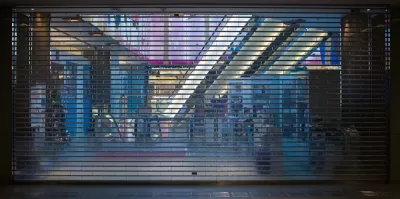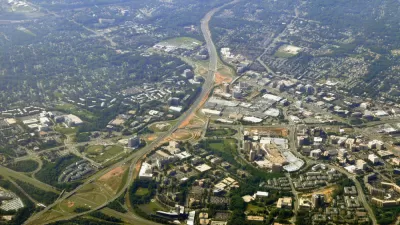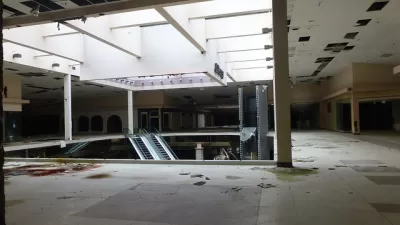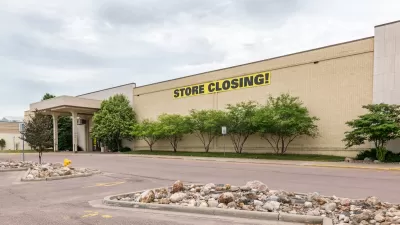The former Paradise Valley Mall will undergo a conversion to a mixed-use community with homes, offices, and stores.

The sale of a former mall in Phoenix may be a harbinger of the future, writes Lauren Thomas for CNBC. With consumers moving away from large-scale retail, it is estimated that "25% of America’s roughly 1,000 malls will close by 2025," leaving mall owners and cities with massive, vacant properties that formerly served as community hubs.
After the parcel was rezoned to allow for more diverse development, "mall owner Macerich announced Thursday it’s sold a majority stake in Paradise Valley Mall in Phoenix, for $100 million, to a joint venture with an affiliate of the Phoenix-based, mixed-use real estate company RED Development. The partners will convert the 92-acre site into a community with homes, offices and a grocery store."
According to Mark Toro, managing partner at North American Properties, "America’s malls have reached the end of their useful life." Now, cities are looking for ways to encourage redevelopment and bring back the tax revenue that malls provided. Some former malls are finding new life as e-commerce warehouses and schools. "The future of each struggling mall will likely be case by case, dependent upon the surrounding town’s needs, experts say." The real estate, often situated on transportation corridors and near residential areas, is often "worth more than the mall itself."
FULL STORY: A hint of what’s to come for dying malls: Phoenix mall owner sells out as property is rezoned for other uses

Study: Maui’s Plan to Convert Vacation Rentals to Long-Term Housing Could Cause Nearly $1 Billion Economic Loss
The plan would reduce visitor accommodation by 25,% resulting in 1,900 jobs lost.

North Texas Transit Leaders Tout Benefits of TOD for Growing Region
At a summit focused on transit-oriented development, policymakers discussed how North Texas’ expanded light rail system can serve as a tool for economic growth.

Why Should We Subsidize Public Transportation?
Many public transit agencies face financial stress due to rising costs, declining fare revenue, and declining subsidies. Transit advocates must provide a strong business case for increasing public transit funding.

How to Make US Trains Faster
Changes to boarding platforms and a switch to electric trains could improve U.S. passenger rail service without the added cost of high-speed rail.

Columbia’s Revitalized ‘Loop’ Is a Hub for Local Entrepreneurs
A focus on small businesses is helping a commercial corridor in Columbia, Missouri thrive.

Invasive Insect Threatens Minnesota’s Ash Forests
The Emerald Ash Borer is a rapidly spreading invasive pest threatening Minnesota’s ash trees, and homeowners are encouraged to plant diverse replacement species, avoid moving ash firewood, and monitor for signs of infestation.
Urban Design for Planners 1: Software Tools
This six-course series explores essential urban design concepts using open source software and equips planners with the tools they need to participate fully in the urban design process.
Planning for Universal Design
Learn the tools for implementing Universal Design in planning regulations.
Ascent Environmental
Borough of Carlisle
Institute for Housing and Urban Development Studies (IHS)
City of Grandview
Harvard GSD Executive Education
Toledo-Lucas County Plan Commissions
Salt Lake City
NYU Wagner Graduate School of Public Service





























